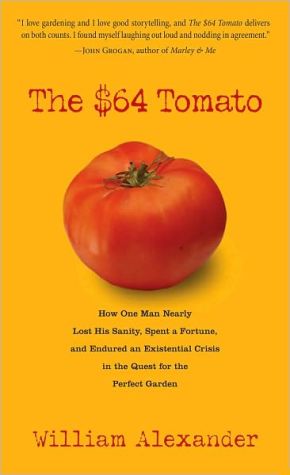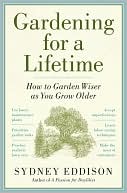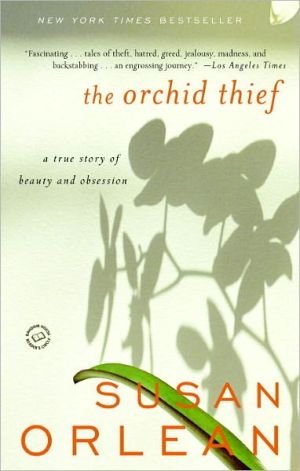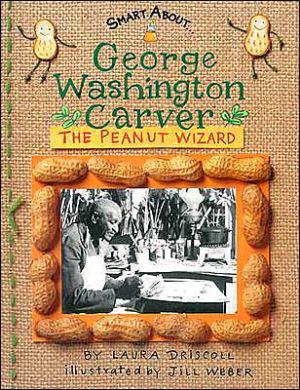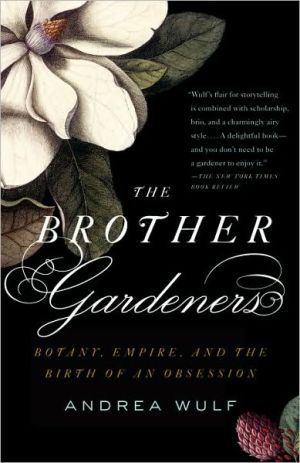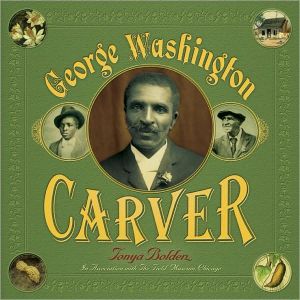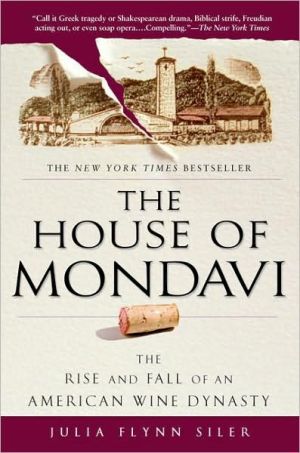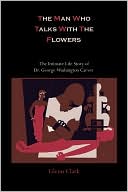The $64 Tomato: How One Man Nearly Lost His Sanity, Spent a Fortune, and Endured an Existential Crisis in the Quest for the Perfect Garden
Who knew that Bill Alexander's simple dream of having a vegetable garden and small orchard would lead him into life-and-death battles with webworms, weeds, and a groundhog named Superchuck? Over the course of his hilarious adventures, Alexander puzzles over why a six-thousand-volt wire doesn't deter deer but nearly kills his tree surgeon; encounters a gardener who bears an eerie resemblance to Christopher Walken; and stumbles across the aphrodisiac effects of pollen when he plays bumble bee...
Search in google:
Bill Alexander had no idea that his simple dream of having a vegetable garden and small orchard in his backyard would lead him into life-and-death battles with groundhogs, webworms, weeds, and weather; midnight expeditions in the dead of winter to dig up fresh thyme; and skirmishes with neighbors who feed the vermin (i.e., deer). Not to mention the vacations that had to be planned around the harvest, the near electrocution of the tree man, the limitations of his own middle-aged body, and the pity of his wife and kids. When Alexander runs (just for fun!) a costbenefit analysis, adding up everything from the live animal trap to the Velcro tomato wraps and then amortizing it over the life of his garden, it comes as quite a shock to learn that it cost him a staggering $64 to grow each one of his beloved Brandywine tomatoes. But as any gardener will tell you, you can't put a price on the unparalleled pleasures of providing fresh food for your family. The Washington Post - Tim Richardson Indeed, the book is one long horticultural midlife crisis, or else Genesis: The Sequel -- what would have happened had God decided to employ Adam as a gardener and transmuted Eve's lust into a predilection for bottling fruit. At one point Alexander wonders, "Am I becoming my garden, or is my garden becoming me?" It is a question that will resonate with many gardeners.
\ Whore in the Bedroom, Horticulturist in the Garden \ "Nature, Mr. Allnutt, is what we are put in this world to rise above."\ —Katharine Hepburn to Humphrey Bogart in The African Queen\ Bridget arrived for her interview late, breathless, and blond. As we drank herbal tea around the kitchen table, she dug deep into a leather portfolio, emerging with glossy photographs of gardens she had designed for previous clients. Anne ooh-aahed over the photographs, which looked like rather ordinary gardens to me, but to be fair, I was only seeing them peripherally. My eyes were riveted on the hands holding the photographs. Delicate, lightly freckled hands with dirty—filthy—fingernails. Real gardener’s fingernails. The effect was startling, at once repulsive and erotic. The phrase whore in the bedroom, horticulturist in the garden popped into my head. I tried to blink it away. When I finally looked up, Bridget smiled and squinted her crinkly green eyes at me. A winkless wink.\ Had I been caught ogling her dirty hands? After reviewing her credentials and our project, we strolled through the property, Bridget and I falling into lockstep as Anne trailed slightly behind. Passing various anonymous plants and flowers, Bridget would point to what was to me some nameless weedy shrub and exclaim in a breathless whisper something like, “Ah, a beautiful Maximus clitoris.” She knew all the botanical names, the Latin rolling off her tongue like steamy profanity in the heat of passion.\ We hired Bridget on the spot, without interviewing anyone else. It seems she’d made an impression on Anne as well.\ “Did you notice her beautiful teeth?” Anne sighed as Bridget drove off in her battered Toyota, vanishing in a cloud of smoke and noise.\ Beautiful teeth? Who were we talking about, Seabiscuit? My wife, a physician, tends to be a little clinical at times. Sometimes I catch her taking my pulse or listening to my heart murmur while I think we’re making love. So the fact that she would sit across from a beautiful woman and mainly notice her teeth should not have surprised me. In fact, Anne is fascinated with, and jealous of, anyone with better teeth than she, which is to say just about anyone born after about 1970.\ “Her teeth? Not really,” I said, being more interested in my burgeoning dirty-fingernail fetish.\ We hired Bridget even though she had never designed a vegetable garden. Who has, after all? People hire landscape architects to design entire landscapes, or patio and pool plantings, or civic gardens. Who hires a professional to figure out where to put the tomatoes? You put down a few railroad ties and throw down some seeds, right? Not us.\ After two years of staring at “the baseball field,” the elongated, sloping piece of land in a hollow between our kitchen and the neighbors’ driveway, and after hours of studying garden-design books, we still hadn’t a clue how to proceed. We wanted something more than the usual boring rectangular beds. We wanted a little pizzazz with our parsley. And it was, to be sure, a challenging space. Bordered on our neighbors’ side by a railroad-tie retaining wall and on the opposite side by our ninety-year-old stone wall, the garden was oddly below grade and, after a rain, held water like a huge sponge. Furthermore, it sloped about fifteen feet along its seventy-five-foot length, so some type of terracing seemed inevitable. We needed professional help.\ The fact that we even had a suitable plot for a garden had come as a bit of a surprise. We had nicknamed the area “the baseball field” because both before and after we moved into our house, the neighborhood kids used it daily for baseball. Not our kids, of course. Katie was still a toddler, and Zach—well, the most useful thing Zach had ever done with a baseball bat was to use it at age five to reach the screen door latch, locking me out of the house while I was waiting on the porch with my glove and ball. He wanted to stay inside and read, not play baseball with his dad.\ So the four of us watched from afar as the kids next door played spirited baseball games in the field. We assumed the land belonged to our next-door neighbors Larry and Claire, whose two sons spent most of their summer afternoons on it. We watched curiously that first summer as the games became difficult when the unmowed grass grew ankle high, then stopped altogether when the grass reached knee height. One day I finally flagged Larry down while he was mowing the rest of his yard and asked why he’d stopped mowing the field. He looked at me as if I were an idiot and said, “Because it’s yours,” gave a tug on his mower, and was off.\ Ours? My first, instinctive reaction was, “Wow, I’ve got more land than I thought! What a deal!” I ran inside to tell Anne. She was, well, unimpressed. Or more accurately, not interested. Clearly the territorial gene resides on the Y chromosome. But even my landowner’s euphoria quickly faded to a more sobering, “Jesus, this worthless patch of lawn is going to add another half hour of mowing every week.” Not to mention that it was now midsummer and the grass had grown to a height of two feet. My third reaction—if you can call a thought that takes several years to arrive a reaction—was, “What a great spot for a kitchen garden.” Not a mere patch for a few tomatoes and baseball-bat-size zucchini (we had already done that), but a real, landscaped, eat-your-heart-out-Monet, gardenmagazine- quality garden—only we would grow mainly vegetables instead of flowers in it.\ Bridget, she of the Scandinavian green eyes and strawberry blond hair, with her perfect teeth and botanical Latin, would design it. Her husband, a landscaper who specialized in garden construction, would build it. One contractor, no hassle. That’s the way we like it.\ Bridget had promised us a preliminary plan in two weeks. As it was just early summer, we had plenty of time. Our goal was to have construction started by Labor Day; that would allow plenty of time to complete the project before the autumn rains turned our yard into a quagmire of slick yellow clay. We really wanted the garden completed by fall, because we were eager to get early potatoes, peas, and spinach planted the following March. If construction was delayed till spring, who knew when it would be completed, and we would lose a half year of crops. Bridget readily agreed that Labor Day was no problem.\ Two weeks came and went, then three. No plan. Two months passed. Finally Bridget called. She had the plans, behind schedule, she acknowledged, but worth waiting for. A few days later, Bridget arrived, still late, breathless, and blond. And smelling of the earth, of a fresh potato patch. She unrolled a large, professionallooking blueprint onto the kitchen table, smoothing it out under her dirty fingernails. It was a lovely work of art, with carefully drawn circles for shrubs, and smaller circles for plants, and little curly things for flowers, with (of course) Latin names indicated for everything. The content, however, was not what I had envisioned. Her design was essentially rows of rectangular beds, separated by two grass paths running up the middle and transversely across the garden. There were some nice touches: where the paths intersected, she had put in stone circles with birdbaths or ornaments, and she had a nice stone staircase descending to the sunken garden. It was a perfectly fine garden, it was just a little . . . I struggled for a word, just the right word, as Bridget nervously studied my face. “Cartesian,” I said.\ Bridget blinked. “Cartesian?” I looked to Anne for help. She pretended not to know me. “You know,” I said. “Rectangular. Planar. I guess we had something more rambling in mind.”\ Bridget looked at the plan and thought for a minute, and this is what she must have said to herself: “My husband is going to use Big Machinery to shape and terrace the land; therefore the terraces have to be perpendicular. Irregularly shaped terraces would require him to build them by hand, which he is not about to do at any price.”\ Obviously, she couldn’t say that to a client. Here instead is the translation she supplied to the naive and gullible homeowner. “The problem is, Bill”—it was strange, tingly, and totally convincing to hear her say my name—“you have to terrace it to deal with the slope, and terraces have to be rectangular.”\ Oh. Well, that shows how much I know. Of course, terraces have to be rectangular. (It would be some years before I realized the blatant untruth of that statement.) Okay, so much for winding, rambling paths. Rectangular is fine. I moved my attention to the broad, grassy paths. “I don’t know that I like the idea of having to mow my garden. Can we put something else in here?”\ Bridget crinkled her green eyes at me. “But, Bill, the grass paths will look so grand,” she insisted. “So stately. And the mowing is nothing. Two swipes with the mower. You think about it; I know you’ll want the grass.” I looked to Anne for guidance, but she was gazing at Bridget.\ The garden architect flashed her pearlies in Anne’s direction. Anne, I think involuntarily, smiled back. What kind of spell had this Valkyrie cast over us?\ Okay, rectangular and grassy. Sounds good to me. And she does have all those beautiful architectural symbols and Latin names, and the great teeth. We wrote out a check and agreed we would see her husband around Labor Day.
Prologue: Gentleman Farmer 1Whore in the Bedroom, Horticulturist in the Garden 3We Know Where You Live 21One Man's Weed Is Jean-Georges's Salad 47No Such Thing as Organic Apples 75You May Be Smarter, But He's Got More Time 96Nature Abhors a Meadow (But Loves a Good Fire) 131Shell-Shocked: A Return to the Front (Burner) 146Christopher Walken, Gardener 162Cereal Killer 186Statuary Rape 208Harvest Jam 220The Existentialist in the Garden 238The {dollar}64 Tomato 247Childbirth. Da Vinci. Potatoes 256Acknowledgments 267Suggested Reading 269Recipes 271
\ The San Francisco Chronicle"A wry memoir in which every reader who's spent way more to grow a plant than he could purchase it for at the supermarket will recognize his own successes, failures and foibles."—San Francisco Chronicle\ \ \ \ \ The New York Observer"Money, sex, aging. That's real gardening!"—New York Observer\ \ \ Life MagazineBoth an inspiration and a cautionary tale for anyone who has ever looked at a tomato and thought, I could grow that!”—Life magazine\ \ \ \ \ Tim RichardsonIndeed, the book is one long horticultural midlife crisis, or else Genesis: The Sequel -- what would have happened had God decided to employ Adam as a gardener and transmuted Eve's lust into a predilection for bottling fruit. At one point Alexander wonders, "Am I becoming my garden, or is my garden becoming me?" It is a question that will resonate with many gardeners.\ — The Washington Post\ \ \ \ \ Publishers WeeklyWhen the author of this hilarious horticultural memoir plants a large vegetable garden and a small orchard on his Hudson Valley farmstead, he finds himself at odds with almost all creation. At the top of the food chain are the landscaping contractors, always behind schedule, frequently derelict, occasionally menacing. Then there are the herds of deer that batter the electrified fence to get at Alexander's crop, and the groundhog who simply squeezes between the wires, apparently savoring the 10,000-volt shocks. Most insidious are the armies of beetles, worms, maggots and grubs that provoke Alexander, initially an organic-produce zealot, into drenching his entire property with pesticides. He braves these trials, along with hours of backbreaking labor and the eye-rolling of his wife and children, for the succulence of homegrown food. He also manages to maintain a sense of humor, riffing on everything from the ugliness of garden ornaments to the politics of giving away vegetables to friends. Alexander's slightly poisoned paradise manages to impart an existential lesson on the interconnectedness of nature and the fine line between nurturing and killing. (Apr. 14) Copyright 2005 Reed Business Information.\ \ \ \ \ Library JournalAlexander writes the engaging tale of one man's pursuit of the perfect kitchen garden, from its original construction, fraught with delays and construction troubles, to his cost-benefit analysis that reveals each tomato he raised set him back $64. Along the way, we see him battle weeds, try to outsmart local wildlife, and solve the mystery of why his corn is falling over. We also watch him, a man who wants to grow organic produce, come to the sobering realization that he must use pesticides if he wants to harvest any apples at all. Canning produce goes from being a novelty to a chore, and his meadow doesn't turn out quite as he envisioned it. Whether sharing the story of his and his wife's garden statue debate or of the herniated disk that will change his gardening life forever, Alexander reveals himself to be a passionate gardener. This enjoyable book, laced with humor and Alexander's garden philosophy, is highly recommended for public and horticultural libraries.-Sue O'Brien, Downers Grove P.L., IL Copyright 2005 Reed Business Information.\ \ \ \ \ School Library JournalAdult/High School-Alexander had always dreamed of having his own garden, where he could grow healthy, organic fruits and vegetables. When his family moved to the Hudson Valley, he got his wish-there was more than enough land for his vegetable garden, his apple orchard, his wife's flower garden, and a swimming pool. He had done his research and knew which crops to plant and when, what type of fencing he'd need, and how to defend his garden against predators. What he hadn't counted on were the facts that planting sod around the swimming pool killed the corn, and that planting rosebushes killed the sod. There were also landscaping contractors always behind schedule, a groundhog that figured out how to get through a 10,000-electric-volt fence, and feasting deer. After years of fighting pests, Alexander realized that there was no such thing as an organic garden in the Northeast, and that for each tomato he'd taken from his garden he'd spent $64; ultimately, what was once a hobby became a second full-time job. Throughout the telling, the author manages to maintain a sense of humor, riffing on everything from the ugliness of garden ornaments to the politics of giving away vegetables to friends. This hilarious horticultural memoir manages to impart an existential lesson on the interconnectedness of nature and the fine line between nurturing and killing. Teens looking for a biography, a book on biology, or a humorous read can't go wrong with this title.-Erin Dennington, Chantilly Regional Library, Fairfax County, VA Copyright 2006 Reed Business Information.\ \ \ \ \ Kirkus ReviewsPerfectionist, aiming to subdue nature with constant gardening, reaps object lessons by the bushel. When Alexander employed a professional designer to install a terraced garden plot on his newly purchased hilltop home in New York's Hudson Valley, his motivations included the production of vegetables and fruit for the family table, everything strictly organic, pesticide-free, grown using top-of-the-line heirloom seeds, etc. Abetted and occasionally thwarted by wife Anne, a physician who immediately staked out a portion of the garden for flowers (and reserved the bulk of her own precious spare time for them), Alexander embarked on an epic struggle. His book records all the run-ins with variously eccentric and even hostile suppliers and contractors, plus his many misconceptions and foibles. For example, the depredations of deer and a determined groundhog prompted the installation of an electric fence. Aghast, the author watched as the groundhog, dubbed Superchuck, simply absorbed the shocks to wriggle through to his prize crops; when Alexander juiced up the system with a more powerful capacitor, Superchuck learned to time the intervals between pulses. It gradually dawned on the author that he was dealing with a complex and delicate ecosystem, a fact brought stunningly home when the planting of a mere four rosebushes brought in a Japanese beetle horde to ravage the property, and when turf webworms unwittingly imported along with a new lawn eventually brought down the corn in the field. After tallying the expenses for one bad season, the 19 Brandywine tomatoes picked proved to have cost $64 apiece. An amusing compilation of do's and don'ts for aspiring gardeners afflicted with hubris.\ \ \ \ \ Library JournalThe engaging tale of one man’s pursuit of the perfect kitchen garden, from its original construction, fraught with delays and construction troubles, to his cost-benefit analysis that reveals each tomato he raised set him back $64….This enjoyable book, laced with humor and Alexander’s garden philosophy, is highly recommended.”\ \ \ \ \ Publishers Weekly“[A] hilarious horticultural memoir.…Alexander’s slightly poisoned paradise manages to impart an existential lesson on the interconnectedness of nature and the fine line between nurturing and killing.”\ \ \ \ \ Newsday"A refreshing take on the city-mouse-turns-country-mouse-and-lives-to-tell genre . . . Alexander's ability to elevate and expand his experience . . . reminds us that we have little control over the places obsession takes us—even the ones that seem most innocuous, such as a simple backyard vegetable patch."\ —Newsday\ \ \ \ \ \ Entertainment Weekly"Engaging, funny, and down-to-earth."—Entertainment Weekly\ \ \ \ \ New York Times Book Review"Gardening as extreme sport. . . . Engaging, well paced and informative."—The New York Times Book Review\ \
